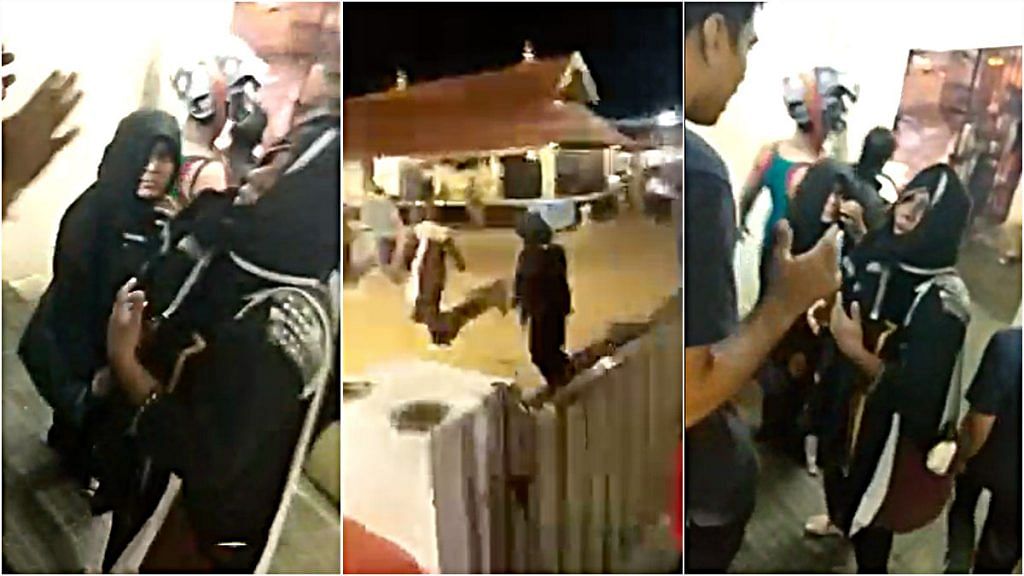The women — Bindu, a lawyer, and Kanakdurga, who works with the state govt, entered the inner sanctum of Sabarimala shrine early Wednesday.
Bengaluru: The entry of the two ‘menstruating’ women into the Ayyappa temple in Sabarimala is a further shot in the arm for the Pinarayi Vijayan-led Left Front government, already basking in the success of the ‘women’s wall’, which saw women form a 620-km long human chain across Kerala in support of gender equality.
The two women, Bindu and Kanakadurga from North Kerala, entered the inner sanctum of the hill shrine at 3.45 am Wednesday, becoming the first to do so since the Supreme Court’s September 2018 verdict, lifting a decades-old ban on ‘menstruating’ women, between the ages of 10 and 50, from entering the temple.
Since the verdict, there had been several attempts by women to enter the shrine but they were thwarted by stiff resistance from Ayyappa devotees and Right-wing protesters.
Kerala Chief Minister Pinarayi Vijayan himself confirmed the development Wednesday.
“Earlier, women were not able to enter the temple due to certain hurdles. They may have entered the shrine today because they would not have faced any issues,” he told the media in the state capital Thiruvananthapuram. “It is a fact that the women have entered Sabarimala. Police have given them security.”
Also read: Middle-aged women stopped from entering Sabarimala temple more than 2 months after SC order
A victory for Pinarayi
Political analysts feel this has been a brilliant strategy by the chief minister to make a point that he will keep his promises. They also feel that it will benefit him politically, particularly among women voters, when Kerala heads to the Lok Sabha polls in a few months.
“Politically, in the months to come, women are going to like it. But that is if he sticks to his position and is sincere about this commitment or at least gives off that impression,” Kerala-based political analyst K. Jayaraj told ThePrint.
“Don’t just look at it politically, look at this as a second renaissance movement in Kerala. It embodies women’s equality, giving women constitutional rights while upholding the SC verdict,” said Geetha Nazeer, a senior journalist and activist who participated in the women’s wall Tuesday.
“It also helps to maintain the secular democratic fabric of the country. While there may be a bit of politics involved, the larger picture is that this strengthens secular democratic forces in the country at a time we are facing a threat from communal forces.”
The two women
The two women who managed to breach the gender barrier told ThePrint that they are devotees and activists.
Bindu, 40, is a lawyer and a resident of Thalassery in the state’s Kannur district. A member of the state bar council, she is also an assistant professor at the School of Law, Kannur University.
According to Bindu, the two left the base station at Pamba at 1.30 am and reached the steps of the temple at around 3.30 am.
“We had sought protection from the police at the base station in Pamba,” Bindu told The Print. “From Pamba to the sannidhanam (inner sanctum), we were escorted by police. There were a few devotees who saw us on the way but nobody protested.”
Kanakadurga, 41, works as an assistant manager at the Kerala State Civil Supplies Corporation in Perinthalmanna.
Also read: Another Sabarimala-like crisis is brewing in Kerala
Temple authorities purify shrine
Soon after the development, however, the temple authorities headed by the main priest (thantri) shut the temple and undertook a cleansing ritual.
They also claimed that the women breaching the barrier will affect the Sabarimala season this time around.
“Only half of the devotees as compared to the previous season have arrived this time. Now with these women entering, many will not come to the temple as they will feel that its sanctity has been compromised,” said Mohan K. Nair of the Ayyappa Seva Sangham, a voluntary organisation at Sabarimala.
“Why did the government do it now? Could they have not waited till the season ends on 20 January and then make their point?”
Lakhs of devotees undertake the holy trek to the hill shrine around this time to witness the Makaravilakku, a light that appears at Ponnambalamedu, a remote hill-top to the east of the sannidhanam. The devotees believe that if they witness the Makaravilakku it would bring them good luck.
